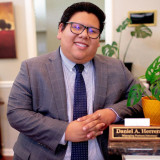Harley v. United States, 198 U.S. 229 (1905)
U.S. Supreme Court
Harley v. United States, 198 U.S. 229 (1905)Harley v. United States
No. 195
Argued April 6, 1905
Decided May 8, 1905
198 U.S. 229
Syllabus
In order to give the Court of Claims jurisdiction under the Act of March 3, 1887, the demand sued on must be founded on a convention between the parties -- a coming together of minds -- and contracts or obligations implied by law from torts do not meet this condition. Russell v. United States, 182 U. S. 516, 182 U. S. 530.
An employee of the Bureau of Printing and Engraving, who at his own cost and in his own time perfected and patented a device for registering impressions in connection with printing presses, which with his knowledge and consent was used for many years by the Bureau, under orders of the Secretary of the Treasury, and who during that period never made any demand for royalties, cannot, under the circumstances of this case, recover such royalties in the Court of Claims on the ground that a contract existed between him and the government because, prior to the use of the device by the government, the Chief of the Bureau promised to have his rights to the invention protected.
Appellant sued in the Court of Claims to recover the sum of $102,000, for the use, during the six years preceding the commencement of the suit, of a device invented by the appellant for registering impressions in connection with printing presses. The Court of Claims dismissed the petition. The findings of the Court of Claims are as follows:
"II. In November, 1869, the Secretary of the Treasury determined that certain valuable securities should not be printed in the Bureau of Engraving and Printing until proper and reliable registers should be attached to the presses. While the Chief of the Bureau was endeavoring to devise and procure a trustworthy form of register, the claimant brought to him the drawings of a device which he had invented, being substantially the device described in the foregoing letters patent. The Chief of the Bureau ordered a register to be immediately made after the claimant's device. At the time of giving such order, he understood that the device was the claimant's invention."
"The register so ordered being completed, and tried, and found satisfactory, the Chief of the Bureau proposed to take the claimant to the Secretary of the Treasury, that he might
explain it to him. The claimant thereupon objected that the invention was not yet patented, and that he wished, before exhibiting it, to obtain a patent for his individual protection. The Chief of the Bureau replied, 'Certainly; I will see that you are protected.' The claimant, then tacitly consenting, was taken before the Secretary, and explained to him the operation of the register, and the Secretary was at the same time informed that this was the register which the claimant had invented. The Secretary approved the form of register, and directed that such registers be made and attached to the presses in the Bureau."
"Before such registers were manufactured, the claimant remonstrated to the effect that he wished first to secure a patent. The Chief of the Bureau replied that he would see the claimant protected, and would get him a patent attorney, who would explain the law to him. This the Chief of the Bureau did, and the attorney so selected proceeded to procure the patent before set forth, the claimant, not the defendants, paying him, and the costs and expenses thereof. The attorney so selected at the same time informed the claimant that the manufacture and use of registers in the Bureau would not interfere with or prevent the procurement of the patent."
"After being so advised, the claimant raised no further objection to the registers' being manufactured and used, and tacitly acquiesced in the same."
"There was no agreement or understanding between the parties in regard to royalty or the payment of remuneration for the use of the claimant's invention in the government's printing and engraving other than such as may be inferred from the preceding conversations. On the part of the claimant, it was supposed and understood that he would be entitled to compensation, and that it would be allowed and paid by the Secretary of the Treasury. But on the part of the Secretary and Chief of the Bureau it was supposed and understood that the claimant, being an employee of the Treasury Department, would neither expect nor demand remuneration. "
"III. That ever since the issuance of said letters patent, the defendant has constructed, and has used continuously, from the date of said letters patent, to-wit, March 1, 1870, upon and in connection with plate-printing presses used by the defendant in the Bureau of Engraving and Printing and in the Treasury building, the device aforesaid, so patented to the claimant, for the purpose of registering the number of impressions made by the various plate-printing presses, both hand and steam, employed and used by the defendant in the said Bureau of Engraving and Printing and in the Treasury Department building."
"IV. The claimant at the time of the making of his invention before described, was assistant master machinist in the Bureau of Engraving and Printing. He was never assigned to the duty of making inventions, and it was not a part of his duty to do so, and the invention before described was made within his own time, and exclusively at his own cost, and was a completed invention, properly and sufficiently set forth in drawings when first brought to the Chief of the Bureau, as set forth in finding II."
"V. The defendants were in the undisturbed use of the claimant's invention from July 24, 1878, to July 24, 1884, by attaching such registers to a great number of their presses. During that period, the claimant made no objection to such use of his invention, and failed to give notice to the Secretary of the Treasury or the Chief of the Bureau of Engraving and Printing that he would demand royalty or remuneration therefor."
"VI. The average number of presses with claimant's device used by the defendants between July 24, 1878, and July 24, 1884, was 200 per day, covering 1802 working days. "




